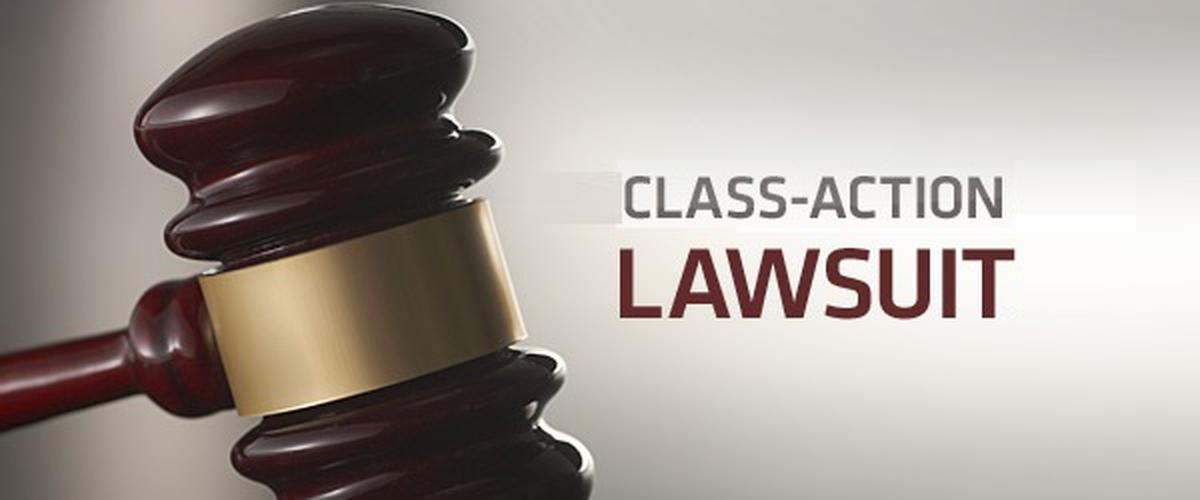Demystifying Class Action Lawsuits: A Closer Consider Lawful Procedures
Class action claims can be complex and daunting, commonly shrouded in a shroud of mystery for those not familiar with the legal process entailed. Nevertheless, acquiring a much deeper understanding of these claims is vital, as they work as a powerful tool for people to look for justice and hold corporations accountable. In this discussion, we will certainly demystify course action lawsuits, taking a better check out the different aspects of the legal process. From recognizing the requirements for course activity eligibility to the duty of class representatives, and from the process of course accreditation to the resolution of these claims, we will unwind the intricacies and clarified the internal workings of this lawful device. Allow's dive right into the globe of class action suits and find the details that lie under the surface area.
Understanding Class Activity Lawsuits
Understanding Course Activity Claim needs a comprehensive assessment of the lawful process involved in cumulative lawsuits. Course action legal actions are a type of lawsuit where a team of individuals with comparable insurance claims or grievances collaborate to start a lawsuit against an usual offender. This type of litigation permits individuals with limited resources to jointly seek justice, as it combines the strength of several specific claims right into a single lawful action.
The process starts with the recognition of a lead complainant or course rep that files the first issue in behalf of the entire class. The court after that determines whether the instance meets the demands for class qualification, that include commonness, numerosity, typicality, and adequacy of depiction. If certified, the court alerts possible course participants, giving them a possibility to opt-out if they wish to pursue their claims independently.
As soon as the class is accredited, the lawsuits proceeds via different phases, including discovery, motion technique, and, if needed, trial. The result of the claim can cause a settlement or a judgment, which is binding on all course participants unless they pick to opt-out. Class activity legal actions can incorporate a wide variety of lawful concerns, such as consumer protection, safeties fraudulence, employment discrimination, and ecological injury.
Comprehending the subtleties of class activity lawsuits is crucial for both plaintiffs and accuseds entailed in cumulative lawsuits. It needs a thorough understanding of the legal needs for certification, the rights and commitments of class participants, and the potential advantages and dangers related to going after or defending against class activity insurance claims.
Identifying Class Action Eligibility
To identify whether a lawsuit certifies as a class action suit, certain requirements have to be met. These criteria are made to ensure that the situation can appropriately stand for the rate of interests of a huge team of people who have actually experienced comparable damage or have been affected by the exact same concern. The key consider identifying class action eligibility is the presence of a typical concern or issue that affects all prospective course participants.
To start with, a class action legal action needs numerosity, which suggests there have to be a substantial number of potential course members entailed. This guarantees that a course action is an effective way to fix the insurance claims of a large team of individuals, rather than having each person submit a specific legal action.
Secondly, there must be commonality among the claims of the possible class participants. This implies that there must be an usual inquiry of law or reality that is central to the situation. If each prospective course member's case is unique and unconnected to the others, a class activity may not be appropriate.

The Function of Course Rep
Course agents play a critical function in course activity claims by representing the rate of interests of the entire class. These people are selected from within the course to act as the general public face of the legal action and are in charge of making decisions in behalf of all course participants. The function of course representatives entails various responsibilities and responsibilities throughout the legal proceedings.
One of the key responsibilities of class representatives is to supply information and support to their fellow class participants. They act as a factor of call and interaction in between the class members and the attorneys representing them. This consists of maintaining the class participants informed about crucial updates, answering their concerns, and attending to any concerns they might have.
Course representatives also have the duty to actively take part in the litigation procedure (Archer-Daniels-Midland class action lawsuit). This includes working carefully with the attorneys to create legal methods, collecting evidence, and supplying statement if necessary. They YOURURL.com must be proactively associated with all elements of the situation to make sure that the very best passions of the whole course are stood for
Additionally, class representatives are accountable for accepting settlements or various other resolutions reached in the claim. They have to thoroughly assess the terms of the settlement and decide that remains in the most effective rate of interest of the entire course. This decision-making process calls for cautious factor to consider and assessment with the course members.
The Refine of Course Accreditation
The procedure of accrediting a class in a class action suit involves an extensive assessment of specific requirements to establish if the instance fulfills the essential needs for course accreditation. Class accreditation is a critical action in the litigation procedure as it identifies whether a legal action can proceed as a course action, enabling a large team of individuals with comparable claims to be stood for jointly by one or a few individuals.
To get class certification, the complainant has to show that the suggested course satisfies particular prerequisites. Typicality requires that the claims or defenses of the class agents are regular of those of the class. Competence of representation guarantees that the class reps will rather and sufficiently secure the rate of interests of the course.
If the proposed course satisfies the necessary needs,The court will certainly look at these requirements and the plaintiff's evidence to figure out. The court may likewise consider other aspects, such as whether a class action is the exceptional technique to solve the disagreement and whether the class is sufficiently cohesive.

When the court gives course accreditation, the lawsuit can continue as a see this class action, enabling the plaintiffs to jointly look for alleviation and potentially get a judgment or settlement that profits the whole course.
Resolving Class Activity Legal Actions
When course accreditation has been approved, the next step in solving a course action lawsuit is to navigate the procedure of litigation or negotiation negotiations. Lawsuits refers to the legal procedures in court, where the complainant's lawyer offers proof and debates to sustain their claims, and the defendant's lawyer counters with their very own evidence and disagreements. This procedure can involve various phases, such as pretrial movements, exploration, and test.
On the various other hand, settlement negotiations involve discussions in between the events to get to an equally acceptable resolution without going to test. BioVie class action lawsuit. Negotiation uses might be made at any phase of the lawsuits process, and if both celebrations agree, a negotiation agreement is reached. This agreement generally outlines the conditions of the negotiation, including any kind of financial payment, injunctive alleviation, or other treatments. As soon as the settlement is wrapped up, it is provided to the court for approval.
Conclusion
To conclude, course action suits play a vital duty in giving justice and compensation to large teams of people who have actually been damaged by the exact same entity. By appointing and accrediting a course class agents, the legal procedure ends up being a lot more reliable and accessible for the complainants. Handling these claims can be a facility and lengthy process, however it is necessary in holding companies answerable for their activities and guaranteeing reasonable end results for all affected events.
From recognizing the criteria for course activity qualification to the role of class agents, and from the procedure of look at here now class qualification to the resolution of these lawsuits, we will decipher the details and dropped light on the internal functions of this lawful device. The essential factor in determining class action qualification is the existence of a typical question or problem that influences all potential course participants.
If each possible course participant's case is unassociated and distinct to the others, a course action might not be ideal.
Course agents play an essential duty in class action legal actions by standing for the rate of interests of the entire class.When class qualification has been provided, the following action in settling a class action legal action is to browse the process of lawsuits or settlement arrangements.